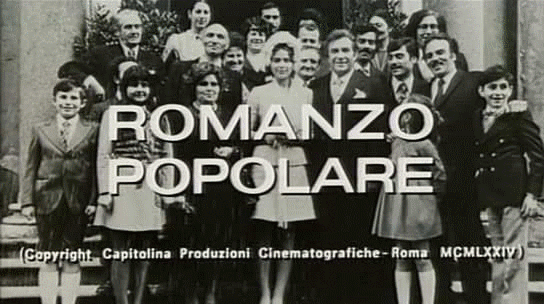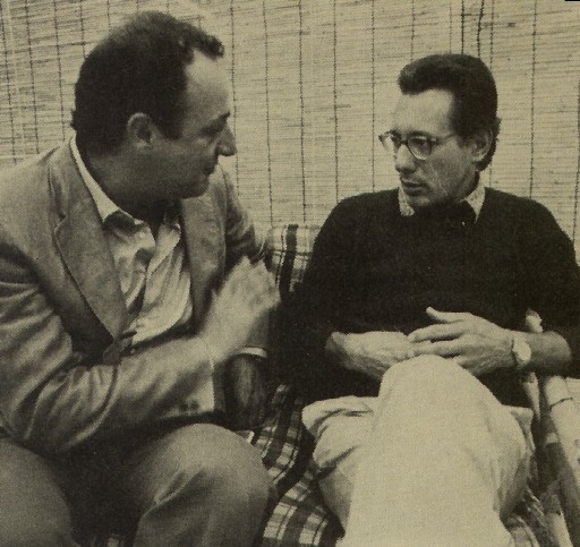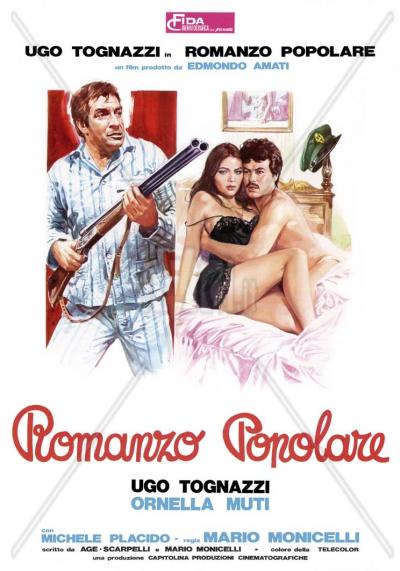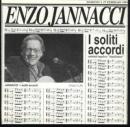Vincenzina davanti la fabbrica,
Vincenzina il foulard non si mette più...
Una faccia davanti al cancello che si apre già.
Vincenzina hai guardato la fabbrica
Come se non c'è altro che fabbrica
E hai sentito anche odor di pulito
E la fatica è dentro là...
«Zero a zero anche ieri: 'sto Milan qui,
'Sto Rivera che ormai non mi segna più,
Che tristezza, il padrone non c'ha
neanche 'sti problemi qui...»
Vincenzina davanti alla fabbrica,
Vincenzina vuol bene alla fabbrica,
E non sa che la vita giù in fabbrica
Non c'è,
Se c'è
Com'è ?
Vincenzina il foulard non si mette più...
Una faccia davanti al cancello che si apre già.
Vincenzina hai guardato la fabbrica
Come se non c'è altro che fabbrica
E hai sentito anche odor di pulito
E la fatica è dentro là...
«Zero a zero anche ieri: 'sto Milan qui,
'Sto Rivera che ormai non mi segna più,
Che tristezza, il padrone non c'ha
neanche 'sti problemi qui...»
Vincenzina davanti alla fabbrica,
Vincenzina vuol bene alla fabbrica,
E non sa che la vita giù in fabbrica
Non c'è,
Se c'è
Com'è ?
inviata da giorgio - 25/12/2012 - 11:30
Lingua: Inglese
English translation by Riccardo Venturi
December 25, 2012

The anonymous popular housing block of Sesto San Giovanni, the neighborhoods and streets of Lambrate, the industrial plants like the former Innocenti, the workers and their daily toil; the trade union struggles, the protestations, the demonstrations and the street riots. The fog that makes days sadder. Milan is always on the background of Romanzo Popolare, a motion picture directed 1974 by Mario Monicelli (and written together with Age and Scarpelli) with a cast of actors such as Ugo Tognazzi, Ornella Muti and Michele Placido. The story of Giulio Basletti (Ugo Tognazzi), a Milanese metalworker and union militant, his passion for Vincenzina (Ornella Muti), a girl from Southern Italy, much younger than him, who left her native village to look for work; their marriage and happiness, a baby and, then, the dramatic ending of their love story when Giulio finds out she has cheated him with Giovanni (Michele Placido), a policeman who also came from Southern Italy to look for better life, and who Basletti met on a street demonstration. The movie was one major success in the season 1974/75 with receipts exceeding ITL 1,500,000,000 of that time.
The movie was a true portrait of years that changed Italy's customs, uses and habits, and the country itself: the relationships between man and woman, the contrast and misunderstandings between Northern and Southern Italy.
The language spoken by the characters is also unforgettable: Tognazzi's distinct Lombard accent (the dialogues were written with Beppe Viola, who also was part of the movie cast as a cinema usher), Vincenzina's naivety and Placido's dialectal inflexion. In the end, Vincenzina goes to live on her own, working to grow her baby. She meets again Giulio, now retired; reconciliation, and maybe a new life together, might be possible...
“Nil-nil yesterday too, Milan goes this way...and Rivera who doesn't know anymore how to score a goal, it's so sad, the master hasn't this kind of problems, neither...”. Well, as it was said at that time, this is no “Vincenzina”, but Vincenzino J., or Beppe Viola, or Tognazzi himself, three keen fans of Ganni Rivera's and Nereo Rocco's Milan AC.

So, irony and sadness mix in a paradoxical melodrama: “Vincenzina loves the factory, but she doesn't know there's no life in the factory, and if there is, how is it?”
My thoughts, so, go back to Vincenzina and to all the Vincenzinas who came from the South (but also from the East) and got lost in the greyish fog of a large town of Northern Italy, facing with pain and for the first time the impact with any sort and feeling of affliction, bitterness and discomfort of a destroying metropolitan and industrial reality... [transl. RV]
December 25, 2012

The anonymous popular housing block of Sesto San Giovanni, the neighborhoods and streets of Lambrate, the industrial plants like the former Innocenti, the workers and their daily toil; the trade union struggles, the protestations, the demonstrations and the street riots. The fog that makes days sadder. Milan is always on the background of Romanzo Popolare, a motion picture directed 1974 by Mario Monicelli (and written together with Age and Scarpelli) with a cast of actors such as Ugo Tognazzi, Ornella Muti and Michele Placido. The story of Giulio Basletti (Ugo Tognazzi), a Milanese metalworker and union militant, his passion for Vincenzina (Ornella Muti), a girl from Southern Italy, much younger than him, who left her native village to look for work; their marriage and happiness, a baby and, then, the dramatic ending of their love story when Giulio finds out she has cheated him with Giovanni (Michele Placido), a policeman who also came from Southern Italy to look for better life, and who Basletti met on a street demonstration. The movie was one major success in the season 1974/75 with receipts exceeding ITL 1,500,000,000 of that time.
The movie was a true portrait of years that changed Italy's customs, uses and habits, and the country itself: the relationships between man and woman, the contrast and misunderstandings between Northern and Southern Italy.
The language spoken by the characters is also unforgettable: Tognazzi's distinct Lombard accent (the dialogues were written with Beppe Viola, who also was part of the movie cast as a cinema usher), Vincenzina's naivety and Placido's dialectal inflexion. In the end, Vincenzina goes to live on her own, working to grow her baby. She meets again Giulio, now retired; reconciliation, and maybe a new life together, might be possible...
“Nil-nil yesterday too, Milan goes this way...and Rivera who doesn't know anymore how to score a goal, it's so sad, the master hasn't this kind of problems, neither...”. Well, as it was said at that time, this is no “Vincenzina”, but Vincenzino J., or Beppe Viola, or Tognazzi himself, three keen fans of Ganni Rivera's and Nereo Rocco's Milan AC.

Beppe Viola and Enzo Jannacci
So, irony and sadness mix in a paradoxical melodrama: “Vincenzina loves the factory, but she doesn't know there's no life in the factory, and if there is, how is it?”
My thoughts, so, go back to Vincenzina and to all the Vincenzinas who came from the South (but also from the East) and got lost in the greyish fog of a large town of Northern Italy, facing with pain and for the first time the impact with any sort and feeling of affliction, bitterness and discomfort of a destroying metropolitan and industrial reality... [transl. RV]
VINCENZINA AND THE FACTORY
Vincenzina in front of the factory,
Vincenzina, you should wear your headscarf no more...
A face in front of the gate opening now...
Vincenzina, you looked at the factory
as if it were nothing else than the factory
and you even smelt cleanliness
and there's hard work inside...
“Nil-nil also yesterday, Milan goes this way...
And Rivera who doesn't know anymore how to score a goal,
it's so sad, the master hasn't this kind of problems, neither...”
Vincenzina in front of the factory,
Vincenzina loves the factory,
and doesn't know there's no life
in the factory,
and if there is,
how is it?
Vincenzina in front of the factory,
Vincenzina, you should wear your headscarf no more...
A face in front of the gate opening now...
Vincenzina, you looked at the factory
as if it were nothing else than the factory
and you even smelt cleanliness
and there's hard work inside...
“Nil-nil also yesterday, Milan goes this way...
And Rivera who doesn't know anymore how to score a goal,
it's so sad, the master hasn't this kind of problems, neither...”
Vincenzina in front of the factory,
Vincenzina loves the factory,
and doesn't know there's no life
in the factory,
and if there is,
how is it?
ROMANZO POPOLARE

Romanzo popolare
Titolo originale: Romanzo popolare
Paese di produzione: Italia
Anno: 1974 (Uscita nelle sale: 29 ottobre 1974)
Durata; 102 min
Colore: colore
Audio: sonoro
Genere: commedia
Regia Mario Monicelli
Soggetto Age, Scarpelli, Mario Monicelli
Sceneggiatura Age, Scarpelli, Mario Monicelli
Produttore Edmondo Amati per Capitolina Produzioni
Fotografia Luigi Kuveiller
Montaggio Ruggero Mastroianni
Musiche Enzo Jannacci
Scenografia Lorenzo Baraldi
Interpreti e personaggi
Ugo Tognazzi: Giulio Basletti
Ornella Muti: Vincenzina Rotunno
Michele Placido: Giovanni Pizzullo
Pippo Starnazza: Salvatore
Nicolina Papetti: moglie di Salvatore
Vincenzo Crocitti:
Alvaro Vitali:
Doppiatori italiani
Valeria Ruocco: Vincenzina Rotunno
Roberto Bertea & Enzo Jannacci: Salvatore
Premi
David di Donatello 1975: migliore sceneggiatura
Film Completo - Dailymotion
Riccardo Venturi - 25/12/2012 - 21:27
Il testo della canzone (come si legge anche nei titoli di coda del film) fu scritto a quattro mani da Iannacci e Viola.
×
![]()








Testo di Enzo Jannacci e Beppe Viola
Musica di Enzo Jannacci (singolo 45 giri)
Album: Quelli che…[1975]
Dalla colonna sonora del film Romanzo Popolare di Mario Monicelli (1974)
Altri interpreti: Mina, Susanna Parigi, Il Fieno, Luca Carboni
Il ritratto d'autore di anni che hanno cambiato il costume, le abitudini e il Paese: il rapporto tra uomo e donna, il confronto e le.. incomprensioni tra Nord e Sud (!).
Indimenticabile anche il linguaggio dei personaggi: lo spiccato accento lombardo di Tognazzi (i dialoghi furono scritti con Beppe Viola, apparso anche lui sul set, nei panni della maschera del cinema), le ingenuità di Vincenzina e le inflessioni dialettali di Placido. Vincenzina vivrà da sola e lavorerà per crescere il figlio. Incontrerà ancora Giulio ormai in pensione. Forse ci sarà una riconciliazione. Magari ci sarà anche un futuro..
«Zero a zero anche ieri 'sto Milan qui, 'sto Rivera che ormai non mi segna più, che tristezza, il padrone non c'ha neanche 'sti problemi qua...». Beh, qui più che Vincenzina, come si disse ai tempi, c'è Vincenzino J. o Viola o lo stesso Tognazzi, tutti e tre tifosi sfegatati di quel Milan di Gianni Rivera e di Nereo Rocco.
L'ironia e la malinconia si fondono e si amalgamano in un paradossale melodramma: «Vincenzina vuol bene alla fabbrica, ma non sa che la vita giù in fabbrica non c'è, se c'è, com'è?»
Il mio pensiero rincorre ancora Vincenzina.. e tutte le Vincenzine venute dal Sud (ma anche dall’Est), smarrite nel grigiore della nebbia di una grande città del Nord Italia,intente ad affrontare, con dolore e per la prima volta, l'impatto con tutte le laceranti forzature, le amarezze e i disagi di una atomizzante realtà industriale e metropolitana…